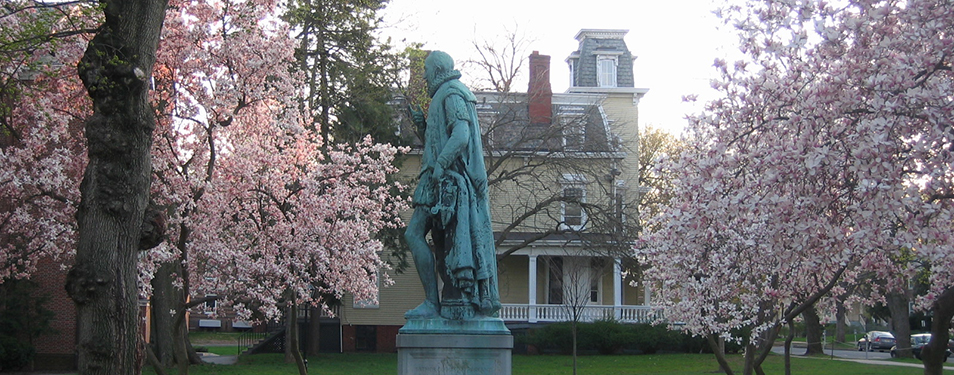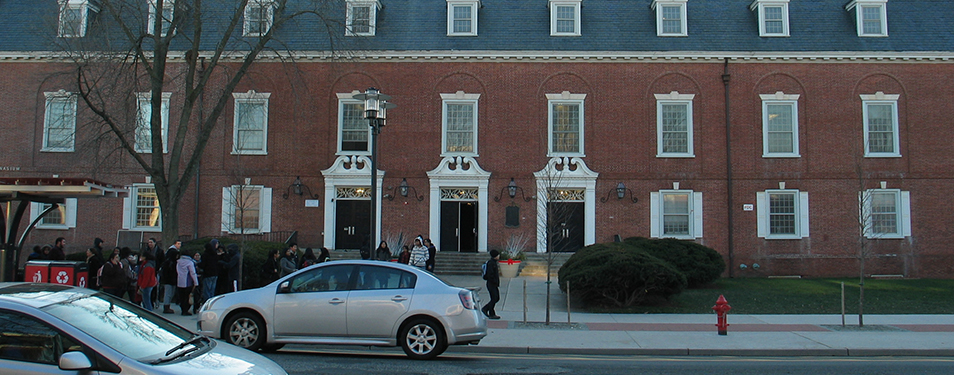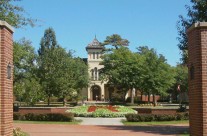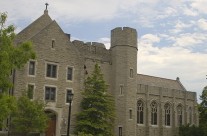
Rutgers University
Posted in EastRutgers University in New Jersey is a public research university. It is the 8th oldest college in the United States and the largest in New Jersey. It was also founded before the American Revolution, making it one of the nine Colonial Colleges. Rutgers was affiliated with the Dutch Reformed Church and was originally a private university before becoming a public research university. The College of William & Mary is the only other Colonial College to make the transition from private to public. Rutgers is also a member of the Association of American Universities.
History
Twenty years after Princeton University (originally the College of New Jersey) was established, Dutch Reformed Church ministers attempted to establish another college in New Jersey to train people to become ministers within the church. On November 10th, 1766, Queen’s College was chartered to meet this purpose. It was chartered thanks in large part to the efforts of Rev. Jacob Rutsen Hardenbergh and Rev. Theodorus Jacobus Frelinghuysen. In 1771, the first students were admitted to the college, and it granted its first degree in 1774, but was forced to close twice because of a lack of funds. It was eventually reopened in 1825, however, and was renamed Rutgers College in honor of Colonel Henry Rutgers, a hero of the American Revolution. Acts of New Jersey Legislature in 1945 and 1956 designated Rutgers as the State University of New Jersey. On September 10th, 1970, the Rutgers Board of Governors passed a vote to admit women into the college.

Programs
Rutgers’ Graduate School of Education is ranked by U.S. News as the 47th best Education School in the United States. The School is dedicated to the improvement and study of education, and since 1923 has been a national leader in supporting educational researchers and preparing creative and effective educators. Students pursue advanced study in education while working towards Doctor of Education, Doctor of Philosophy, or Master of Education degrees. The School is organized around three departments: Educational Psychology, Learning and Teaching, and Educational Theory, Policy, and Administration. Each department offers four academic programs. Rutgers also has a strong psychology program (most popular undergraduate major at Rutgers is psychology). The Department of Psychology offers students a broad selection of opportunities and courses for internships, research, and fieldwork. The undergraduate major consists of Quantitative Methods, General Psychology, four core courses, a lab course, and five psychology electives. The graduate program is divided into 4 main areas: Social Psychology, Clinical Psychology, Behavioral Systems Neuroscience, and Cognitive Psychology. The Ph.D. program prepares students for careers as researchers in either academic or non-academic settings.

Pros & Cons
Rutgers ranks as the 68th best university in the United States, according to U.S. News. It provides an excellent education with much more lenient admission standards than a school like Princeton. Rutgers acceptance rate in Fall 2011 was 61.1%, so while it is still tough to get into, it is not impossible. Rutgers University’s main campus is split into 5 mini-campuses. Each mini-campus offers a unique setting and identity, and each has its own dining options and student center. This diversity can be a major attraction to prospective students. Rutgers also has over 700 student clubs and organizations, which includes approximately 70 fraternities and sororities. The in-state tuition is just over $13 000 while room and board costs over $11 000. Out-of-state tuition is much more expensive, however, coming in at $26 393 per year. Only 38.7% of classes at Rutgers have fewer than 20 students, which can limit student-teacher interaction.

 Carnegie Mellon University
Carnegie Mellon University Duke University
Duke University Johns Hopkins University
Johns Hopkins University Massachusetts Institute of Technology
Massachusetts Institute of Technology Rutgers University
Rutgers University Villanova University
Villanova University